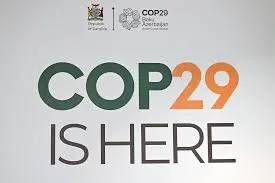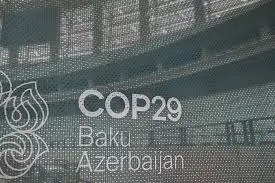Climate finance was a significant confrontation point during the COP29 climate summit in Baku, and a central issue for the success of global climate action.
The reactions from the developing countries towards the proposal from the developed nations regarding an annual commitment for climate finance by 2035 are furious; the amount that amounts to $250 billion far below the $1.3 trillion that the developing countries demand to meet the requirements of the climate crisis effectively.
This finance proposal has sparked fears that the summiteering deadlock will be similar to the infamous Copenhagen summit of 2009, where failure to agree on climate finance eroded trust and made progress impossible. Thus, the COP29 negotiations have been extended to add an extra day; however, many people are uncertain if the summit will really end with meaningful consensus.
The Finance Gap: A $250 Billion Proposal vs. Real Needs
The central issue at COP 29 has been financing climate action in developing countries. The draft proposal put forth by this bloc has developed nations committing to mobilizing $250 billion annually by 2035. While that sounds like a pretty penny, it remains chump change compared to what experts say is needed to meet global climate goals.
Developing nations like Brazil, however, have articulated that the amount is significantly less than what they consider acceptable and what is required urgently to finance adaptation and mitigation climate change efforts. Environment Minister Marina Silva, Brazil, warned that without such finance countries may not be able to update their Nationally Determined Contributions (NDCs) next year at COP30 in Brazil.
NDCs refer to the climate pledges that every country has made towards reducing global warming; failure to provide the relevant funding may mean countries cannot stay within their commitments.
The $250 billion proposal, according to experts, is not even enough, inflation-adjusted. At 6% per annum inflation rates, climate finance specialists pointed out that this amounts to the $100 billion goal set by the world for 2020. In short, the proposed sum is just a re-packaging of older commitments, not an increase in the level of ambition needed to meet Paris Agreement targets.

Less Than Half of What’s Needed – At Least $300 Billion by 2030
The proposed $250 billion is nowhere near the funding quantum necessary to achieve the ambitions of the Paris Agreement. Another influential body, the Independent High-Level Expert Group on Climate Finance, suggests a more pragmatic target of $300 billion annual flows by 2030, and $390 billion annually by 2035.
These proposals are anchored in a detailed roadmap highlighting direct bilateral finance stepped up from developed countries, more ambitious contributions from multilateral development banks, and improved mobilization of private finance.
At COP29, the draft proposal stresses private funding as the major source of climate finance, depending on public-private partnerships, as well as bilateral and multilateral channels and alternative sources. The important work done thus far is not an alternative for the core obligation of developed countries to provide direct public finance to support climate action in the Global South.
The emphasis on private funding also raises the issue of fairness and accessibility in financing for the world’s most vulnerable nations, which may have fragile political or economic states and little possibility of attracting private investments.
The Link Between Climate Finance and Climate Action
Perhaps one of the most critical elements of climate finance is its direct link to climate action. Without sufficient finance support, climate goals are doomed to fail, and NDCs cannot be enhanced in developing countries. As Marina Silva reminded us, Brazil has already pledged to take its NDCs in line with the 1.5°C global warming limit-again subject to clarification and the provision of firm commitments at COP29.
If meaningful financial support through these negotiations is not forthcoming, countries will lack reasons to raise their ambitions for COP30, at which international climate pledges will be updated.
The urgency in this case lies in the fact that the financing required for adaptation and mitigation of climate change is vast. For instance, extreme weather events in developing countries are occurring with catastrophic consequences. All these also require massive funding to enhance resilience, renewable transition, and safeguard vulnerable people. If not received, they may have to scale down their objectives toward achieving climate goals, further delaying global progress on climate change.

The Fossil Fuel Dilemma:
Missing from the COP29 draft proposal is any clear commitment to phase out away from fossil fuels. This was a major issue at COP28 in Dubai, where the phase out of fossil fuels was discussed as part of the broader effort to limit global warming to 1.5°C. The failure to discuss the issue in the draft text at COP29 raises doubts that the summit would water down the commitment made so far to decarbonize the global economy.
Fossil fuel subsidies remain a major obstacle to climate action, and many developing countries are still heavily dependent on coal, oil, and natural gas for energy production. In the absence of strong language covering fossil fuel transition, it is unlikely that the world’s biggest polluters will be made accountable for their role in global emissions.
The Role of Emerging Economies in Climate Finance
By far, the draft proposal sets targets on developed countries, with little discussion on how emerging economies, like China, can share global climate finance. Experts suggest that countries like China could play an even bigger role in financing climate action as the growth of their economies continues. However, there is reluctance to formally require emerging economies to contribute to the $250 billion goal, given the historical focus on the responsibility of developed nations to lead on climate finance.
One potential compromise is to allow emerging economies to contribute to the climate finance pool without being formally held accountable to meet specific funding targets. This ensures a more equitable distribution of responsibility while also taking into account the changing role of these countries in the global economy.
Conclusion: Urgent Action Required
The COP29 summit is at a critical juncture. A climate finance proposal of $250 billion would be far from adequate for meeting the needs of developing countries or to meet the goals of the Paris Agreement. Experts and negotiators are calling for much higher levels of financial support—at least $300 billion per year by 2030—to ensure that climate action can be scaled up and that countries can meet their NDCs.
When this COP29 goes into overtime, there is still hope that negotiators can close the gap between developed and developing countries. But without clear and ambitious financial commitments, risk of failed summit looms. Its aftermath would be dire for not just the most vulnerable countries to climate change but for the whole planet. The global community must recognize the urgency of the situation and commit to the financing needed to protect our future.
Ultimately, the success of COP29 will depend on whether developed nations step up to meet their financial obligations and whether a clear path forward can be agreed upon that allows all countries to contribute to the fight against climate change. Time is running out, and the world’s climate future hangs in the balance.







